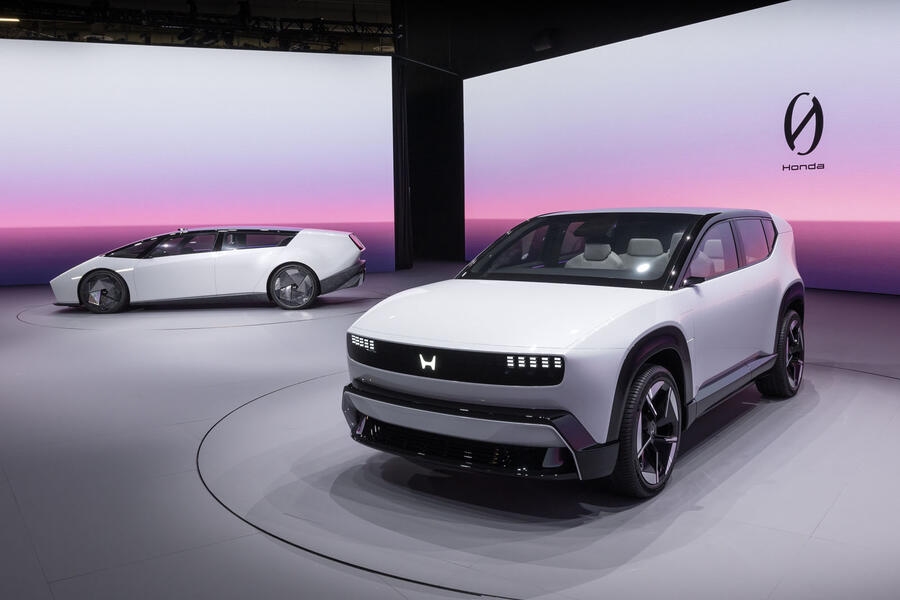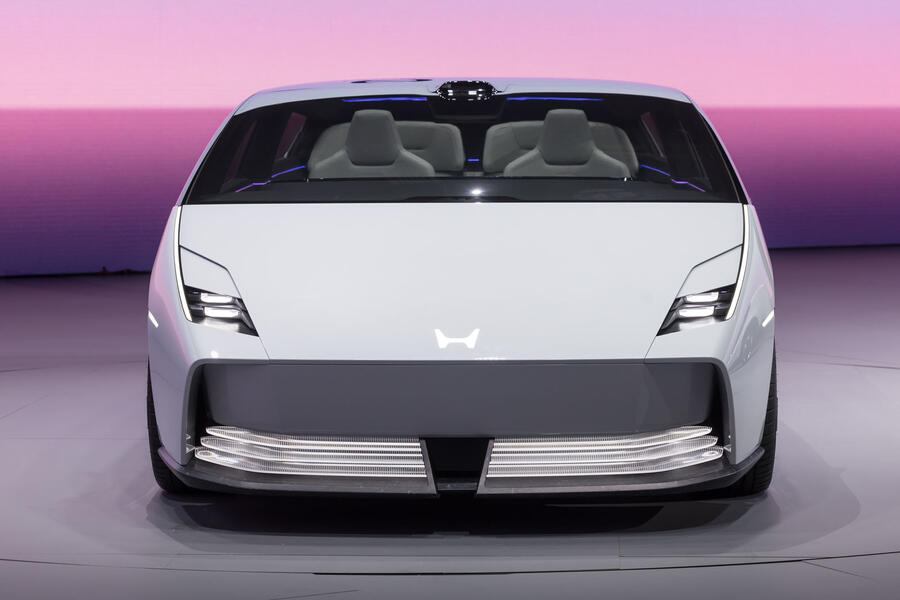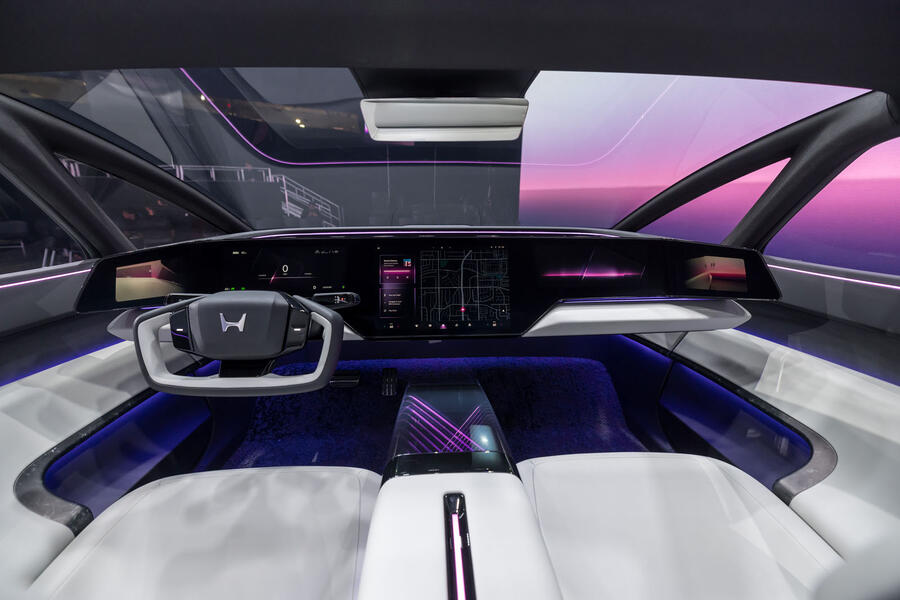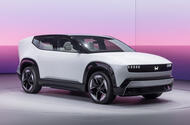SUV is one of two prototypes shown at CES previewing range of radical electric cars
Honda has ramped up preparations for its new family of next-generation 0 Series EVs by revealing full prototype versions of its radically styled Saloon and SUV.
The 0 Saloon and 0 SUV are the first of seven planned EVs that will sit on an all-new platform. Both are due to be launched in North America next year before arriving in other markets, including Europe.
Honda previewed the 0 Saloon with a concept model at the CES tech event last year. The firm has now returned to the Las Vegas show to reveal a prototype version of the saloon, which notably remains true to the concept in both exterior and interior styling, alongside the prototype SUV.
The new 0 SUV is described as being based on the Space Hub concept that Honda showed at CES last year, although it features substantially different proportions from that boxy vehicle.
Honda describes it as a “mid-size†SUV. It appears to be slightly shorter than the saloon and has a more upright, defined windscreen at the front but it is designed to maximise interior space, with a more MPV-esque rear section that features a squared-off tail.
Honda has yet to reveal any firm technical details about either car, although it has previously disclosed to Autocar key information about the platform they will sit on and the firm’s upcoming EV technology.

The key design philosophy of the 0 Series EV platform is “thin, light and wiseâ€. That includes a focus on making lighter battery packs that are around 8mm thinner than those used by rival firms and can be mounted lower in the platform.
Honda claims this will enable sporty handling as well as improve the interior packaging of the vehicles. That in turn means the Saloon can sit lower than some rivals and have more sculpted bodywork, helping to improve its efficiency.
All 0 Series models will be offered with single- and dual-motor powertrains, which will use new compact e-axle motors that are also designed to be mounted lower in the car. Entry-level models will feature a 241bhp motor on the rear axle, while dual-motor versions will provide four-wheel drive. Initially, top-end versions will offer a system output of around 482bhp.
The 0 Series Saloon will use a nickel-manganese-cobalt battery with a capacity of 80-90kWh, for an estimated range of more than 300 miles. Larger models will be offered with packs of around 100kWh.

Another key technology will be megacasting, with Honda using special presses to create large sections of the platform in single cast parts, which will reduce both complexity and weight. In total, Honda claims its 0 Series models will weigh around 100kg less than current-generation EVs of a similar size.
The company has also outlined some of the cutting-edge technology that will make the 0 Series EVs ‘wise’, including a new software operating system that has been developed in-house and will run all the key vehicle systems. Notably, Honda has named it Asimo OS, a nod to the series of humanoid robots it has produced since 1986.
The Asimo OS will be used to integrate the various electronic control units for vehicle systems, such as automated driving and advanced driver aids, with the in-vehicle infotainment systems. It will be continuously added to via over-the-air updates.
The sporting focus of Honda models will be built on through software-controlled 3D gyro sensors, which will be used to apply stabilisation control via systems Honda says it has developed on its robots.

Honda claims 0 Series models will be capable of level-three automated driving, which allows the driver to take their hands off the wheel in certain situations. The firm previously offered level-three autonomy on the Legend with its Sensing Elite technology and claims the new system builds on that and can be utilised in a wider range of situations (where local laws allow).
The SUV will be the first of the 0 Series models to arrive in 2026, and is expected to land in the UK before the end of that year. A larger seven-seater is earmarked for 2027 and two further SUVs, described as compact and small, will follow. A compact saloon is due by 2030 too.
At CES, Honda also confirmed a new deal with Japanese semiconductor firm Renesas to develop a new high-performance system-on-chip that will be used for its subsequent next-generation models, which will arrive in the late 2020s. Honda claims it will allow for substantially faster and more advanced processing performance than in current cars, but with only a minimal increase in power consumption.




